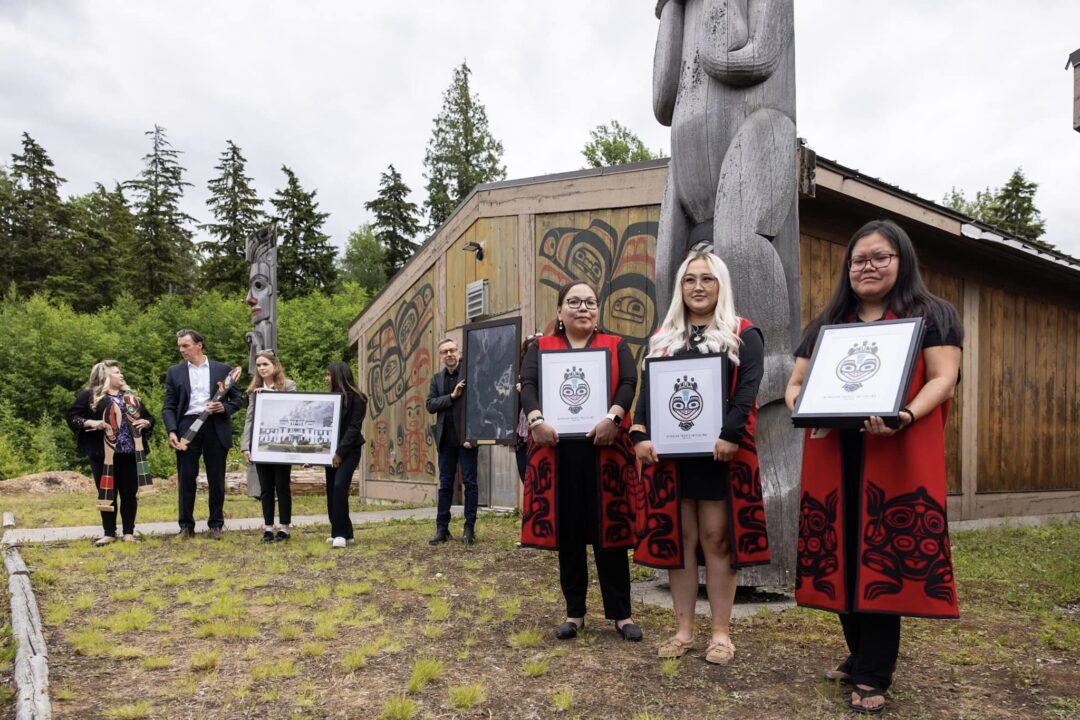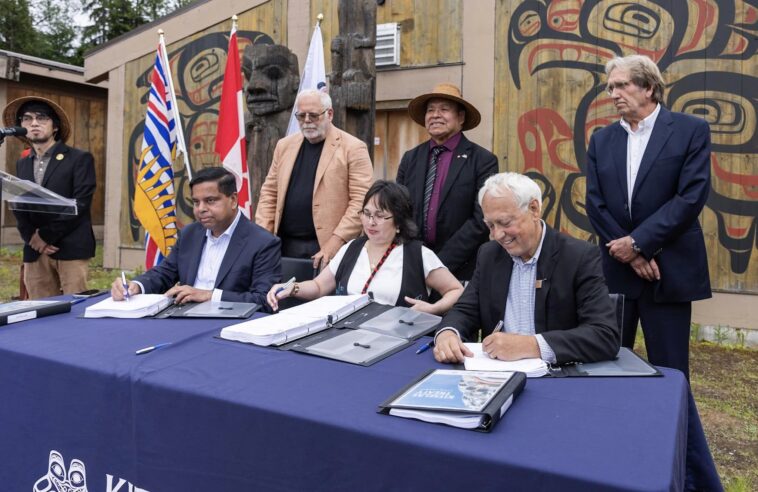After extended negotiations, two Skeena-area First Nations have just entered into separate historic agreements with the provincial and federal governments.
Kitselas First Nation has initialized a draft treaty with Canada after over thirty years of talks. The agreement is a step towards their self-governance and will free its 740 Nation members from the authority of the Indian Act.
“With the financial settlement and freedom from the constraints of the Indian Act, together, the Citizens of Kitselas will create a better tomorrow.”
Chief Glenn Bennett of the Kitselas First Nation
The treaty also includes a fee simple transfer of 38,250 hectares of land to Kitselas from BC, infrastructure funding from the province, and an additional $110 million payment from Ottawa.
“The Kitselas Treaty will grant us greater control over our future, including ownership of our lands, self-governance, and enhanced programs and services,” said Chief Glenn Bennett of the Kitselas First Nation in a statement.
“With the financial settlement and freedom from the constraints of the Indian Act, together, the Citizens of Kitselas will create a better tomorrow,” he stated.
Kitsumkalum Treaty
The nearby Kitsumkalum First Nation also signed their initials on a treaty with the British Columbian and Canadian governments this week.
Both the Kitselas and Kitsumkalum are members of the Tsimshian First Nations Treaty Society, which spans the northwestern coast and the lower Skeena River, including Prince Rupert and Terrace areas.
“Our two communities have walked together for a number of years, well generations, because our people have always co-existed side-by-side. We touched each other, we hugged each other, we have been together for each other,” Wesley remarked.
Their agreement includes a fee simple transfer of 46,460 hectares of recognized treaty lands to the Kitsumkalum First Nation from the province, infrastructure funding and an additional $123 million payment from Ottawa.

Similar to the Kitselas treaty, the 825-member Kitsumkalum First Nation will no longer be subject to the Indian Act and will have the right to self-governance, law-making, and economic authority on its treaty lands.
Not Without Controversy
However, the landmark agreements are not good news for everyone. Neighbouring First Nations are “deeply distressed” about the proposed Kitselas and Kitsumkalum treaties.
“These actions directly contravene UNDRIP and the honour of the Crown which legally require the governments to negotiate with Gitxaaɫa in these circumstances prior to initialling these modern treaties.”
Sm’ooygit Txagyet (Clarence Innis), Gitxaaɫa Media Contact
Both the Gitxaaɫa Nation and Lax Kw’alaams Band have issued separate statements saying they are concerned about the new treaties impacting their own First Nations’ land, hunting, and fishing rights.
“These actions directly contravene UNDRIP and the honour of the Crown, which legally require the governments to negotiate with Gitxaaɫa in these circumstances prior to initialling these modern treaties,” stated Sm’ooygit Txagyet (Clarence Innis) in the Gitxaaɫa-released statement.
“Gitxaała has reached out to both communities to establish protocols to reconcile their prospective treaty rights with Gitxaała adaawx, ayaawx, and gugwilx’ya’ansk, but that conversation remains unfinished,” it read.
Each agreement is expected to be voted on by the Kitselas and Kitsumkalum First Nations in April 2025. Officials say the treaties will be in effect around 2028 at the earliest.




